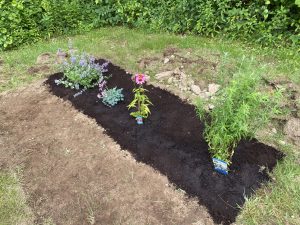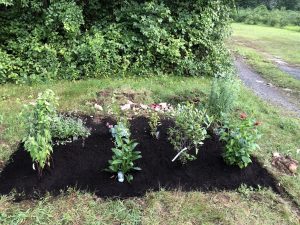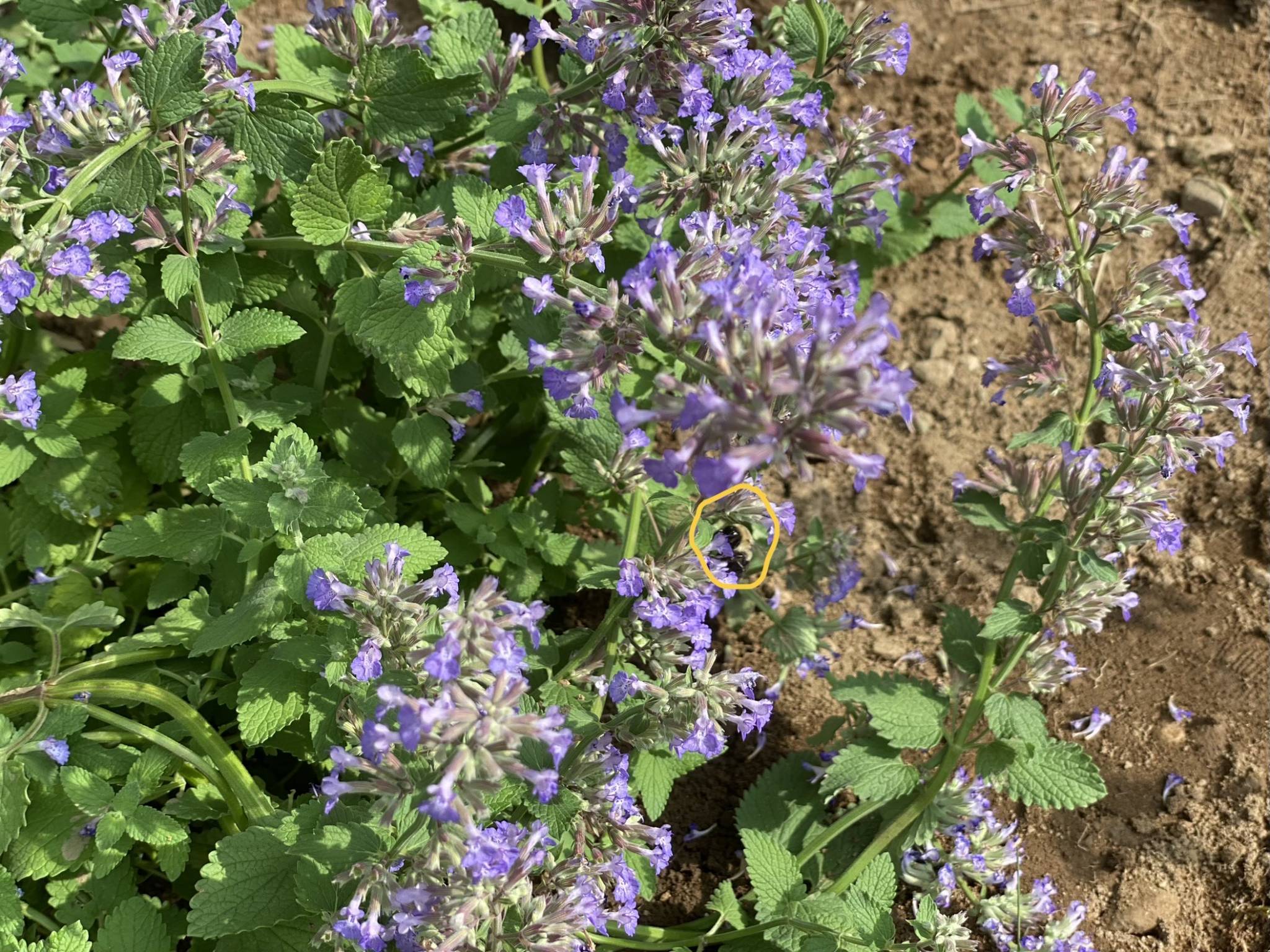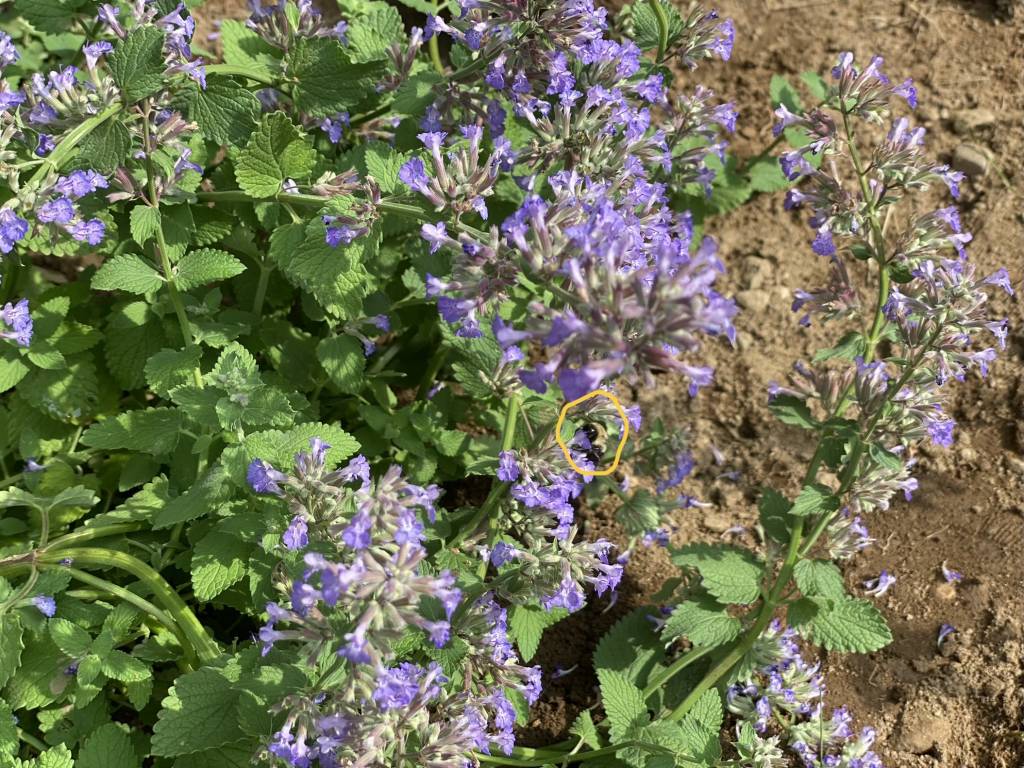More than 700 native bee species in North America have experienced declining population levels because of climate change, habitat loss, pathogens, pesticide use, invasive pests, competition, and nutrition unavailability in the twentieth century. It has become an increasing problem since native bees are the primary pollinator or have a significant role alongside European-introduced honey bees in pollinating crops that humans and other ecological consumers rely on. According to the USGS, about 20%-45% of native bees only pollinate one species, and both species will disappear if one of them does. Indigenous bees pollinate wild plants that honey bees do not, protecting the biodiversity of producers at the bottom of the food chain.
I plan to create a garden of flowering plants that are native to the region of Connecticut I’m from. So far, I have used the CSGC grant to purchase eight different species of flowers (see photos), and I will plant eight more. I have also used the grant to buy mulch and gardening tools. I was overjoyed to spot bumble bees buzzing around the flowers immediately after planting. My goal is to cultivate a garden that will support the survival of local native bee populations by making diverse food sources available and ditching pesticides. Hopefully, it will also decrease competition between honey bees and native bees since the plants I introduced to the local ecosystem are ones that honey bees do not prefer, unlike other bees, like bumble bees, that do. Not only do the plants benefit the bees, but they will also receive pollination benefits from the bees to grow and thrive, reducing greenhouse gasses in the atmosphere.
In the future, I will also extend the benefits of this garden by teaching children about the importance of conserving native species. I will introduce the pollinator garden to the children participating in the Wannabees program, a monthly gathering of young, aspiring beekeepers who meet at the bee yard I am planting next to. I will make fun, engaging informational pamphlets that the children can take home with them.
I am thankful to the Back Yard Beekeepers Association and Aspetuck Land Trust for giving me land to build the garden on, and I am also grateful to the CSGC for the grant that made it come alive.
-Jade ’25



